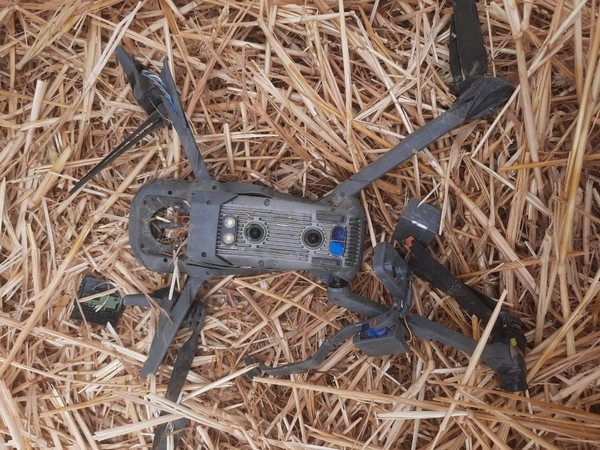No one in the Taliban can replace Mullah Omar
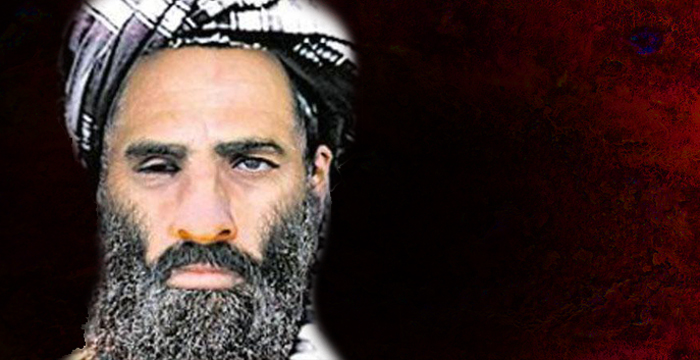
The leader
- Taliban supreme leader Mullah Omar has died, according to reports in the Afghan media
- Mullah Omar had the final say in the Taliban. Those who differed were sidelined
- His death will intensify the power struggle between his son Yaqoob and Taliban No. 2 Akhtar Mansoor
- Neither has Mullah Omar\'s clout
The great game
- Afghan president Ashraf Ghani is pushing for a negotiation with the Taliban
- This will became more easy if Omar is dead. He was uncompromising
- Pakistan may push one section of the Taliban to do business with Ghani
- India has been sidelined in Afghanistan after Hamid Karzai\'s presidency ended
Mullah Omar, the one-eyed supreme leader of the Taliban, is dead. At least that is what reports in the Afghan media suggest. These reports are based on information provided by sources within the Afghanistan government.
While the international media has picked up the report, informed Pakistani journalists are more circumspect. Stating that Mullah Omar's condition is not known, they are stressing more on the power struggle taking place between supporters of Mullah Omar's son Yaqoob and the Taliban's number two Mullah Akhtar Mansoor.
These reports indicate that there are serious cracks in the senior ranks of the Taliban. This, in itself, is a development of great significance for Afghanistan. If indeed Mullah Omar is dead then its importance increases exponentially.
Mullah Omar - whose full name is Mullah Muhammad Omar Akhund - has been the unquestioned leader of the Taliban. Leaders who differed with him, such as former foreign minister Wakil Ahmed Mutawakkil, were marginalised. They may have continued as interlocutors for some western powers but were left with no capacity to influence the Taliban on the ground.
Mullah Omar has been the final arbiter of the Taliban's uncompromising political strategy and objectives. Taliban military commanders may have had some leeway in conducting their operations but they had to bow to his overall will.
All this can be inferred from the manner in which the Taliban continues to oppose the Kabul authorities even while they are willing to engage the west through their Qatar based representatives in order to gain international recognition.
Pakistan has understood that it is not possible to fully control Mullah Omar but it continues to support him. Pakistan gave the Taliban sanctuary and support right from the time the group was defeated in November 2001.
This was because Pakistan's interests and that of the Taliban coincided. As Pakistan's relations with President Karzai became more and more difficult, its support for the Taliban continued to remain firm because the group caused deep instability in Afghanistan. And Pakistan did not want a stable and peaceful Afghanistan under Karzai who they perceive to be a friend of India.
Immediately on assuming office in September 2014, President Ashraf Ghani made the transformation of the Afghan-Pakistan relationship a priority. He wanted to eliminate hostility and create normalcy and cooperation between the two countries. For this purpose, he bent over backwards to assure the Pakistan army that he was willing to downgrade his country's relations with India, especially in the security sector.
This was notwithstanding the India-Afghanistan security partnership agreement. In return, Ghani asked Pakistan to bring the Taliban to the negotiating table. Ghani also courted the Chinese and sought their good offices to pressure Pakistan. The Chinese responded positively.
It is clear from the talks that were held in Murree between the Taliban and Afghan government representatives that Pakistan agreed to persuade the Taliban to come to the negotiating table. However, immediately after these talks the Taliban's political office issued a statement which indicated that the Taliban leadership was divided and it was unclear if Mullah Omar had given the go ahead.
Reports had emerged that the next round of talks was scheduled to take place on July 31 The power struggle now underway in the Taliban is linked to the future course that the group should take. The main question they are faced with is: should they pursue dialogue with the aim of joining the Afghan mainstream or should they continue the struggle for re-establishing the Afghan emirate?
It is impossible to conceive that Mullah Omar and those faithful to him would ever dilute their commitment to the concept of the emirate. Their ideology is completely rooted in the puritanical ethos of the early Islamic period and the very notion of democratic elections as a means of political change and final arbitration, is alien to them.
In their view, the ultimate word has to be with Mullah Omar as he has been the 'Amir-ul-Momineen' (leader of the faithful) since 1996. They are therefore incapable of sharing power on the basis of the present constitution of Afghanistan.
Taliban's dilemma is whether to pursue a dialogue or continue to strive to re-establish their emirate?
If Mullah Omar is dead or is out of the reckoning, the way towards reconciliation with a section of the Taliban would be open. Pakistan would not be unhappy with such an outcome. Its influence over the pro-dialogue Taliban faction would increase and there is little doubt that it would move against the anti-dialogue faction. All this is because Pakistan is now assured that India's influence in Kabul has waned since Ghani assumed power.
The fact is that there is no one in the Taliban who can replace Mullah Omar. His son Yaqoob is an unknown entity and Akhtar Mansoor simply does not have Omar's clout. However, if Omar is eliminated and the reconciliation process continued positively, it does not necessarily mean that peace will return to Afghanistan anytime soon. Those Taliban who are opposed to sharing power will continue to fight. It is unclear what Jalaluddin Haqqani or Gulbuddin Hekmatyar will do. Further, there are groups that have raised the ISIS flag.
Ghani has taken care that representatives of all major Afghan political leaders - Dr Abdullah Abdullah, Abdul Rashid Dostum and Haji Mohammad Mohaqiq have been included in the Afghan delegation to the reconciliation talks. However, there is deep disquiet among non-Pashtun sections about the reconciliation process itself.
India needs to keep a close watch on this process as there is a very real danger of it becoming effectively marginalised in Afghanistan. It has to activate its diplomatic efforts and build contacts with all sections of Afghan opinion.
As told to Namit Hans
First published: 29 July 2015, 8:44 IST
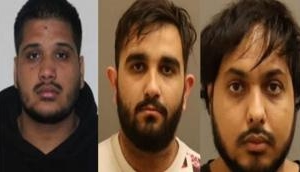
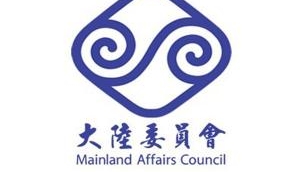

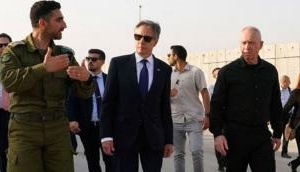
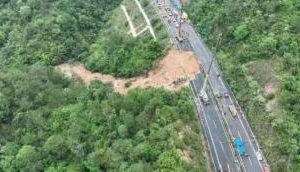
![BJP's Kapil Mishra recreates Shankar Mahadevan’s ‘Breathless’ song to highlight Delhi pollution [WATCH] BJP's Kapil Mishra recreates Shankar Mahadevan’s ‘Breathless’ song to highlight Delhi pollution [WATCH]](http://images.catchnews.com/upload/2022/11/03/kapil-mishra_240884_300x172.png)

![Anupam Kher shares pictures of his toned body on 67th birthday [MUST SEE] Anupam Kher shares pictures of his toned body on 67th birthday [MUST SEE]](http://images.catchnews.com/upload/2022/03/07/Anupam_kher_231145_300x172.jpg)



